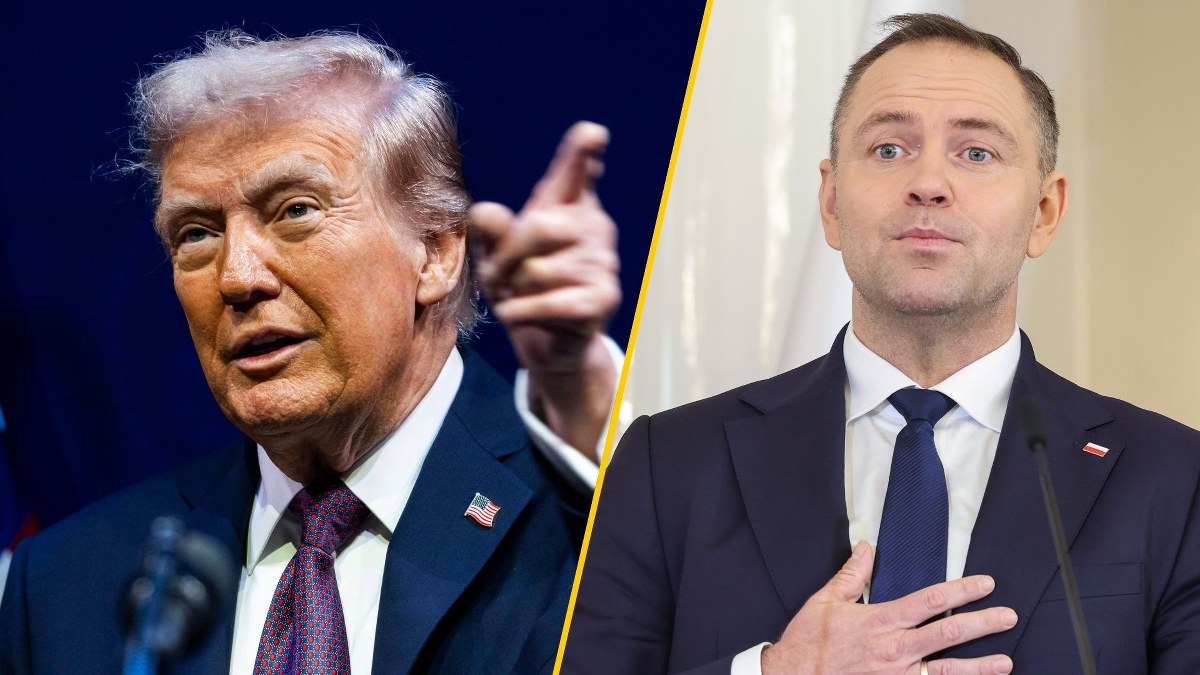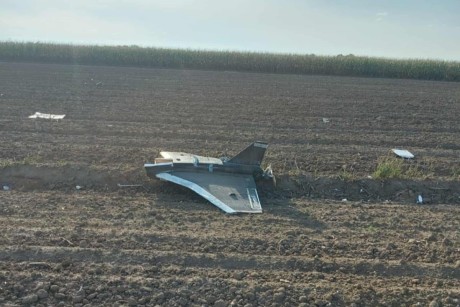On Sunday 19 November, the second circular of the Argentine presidential election took place. With a score of 55.69%, he won it as anarchocapitalist Javier Milei, ahead of the ahead ahead in polls neo-peronist Sergio Massa who scored 44.31%.
Already in the first circular conducted on 22 October, the candidate of the conservative right-handman Prof. Patricia Bullrich – Minister of Labour in the Administration of president Fernando de la Rúa from 2000 to 2001 and Minister of safety in the Administration of president Mauricio Macri from 2015 to 2019, supported by the centre-right Propuesta Republican. Its programme included liberalisation of labour law, budget cuts and the abolition of price controls. It advocated a "shock strategy", promising to end the strike movement and street protests of the unemployed since 1990.
In turn, supported by the centre-left neo-peronist Union for Homeland (Spanish Unión por la Patria, UP), serving as Minister of Finance since August last year, Sergio Massa in the second circular paid a price for galloping inflation of 138% year-on-year.
Libertarian Revolution
Election winner, Libertarian organization leader (Spanish Partido Libertario, PL), supported by coalition La Libertad Avanza (LA), Javier Milei based his run on anti-establishment transmission – called for a vote against the current political elite. In his election campaign, he opposed the "good Argentines" made up of state officials and organization nomenclature "a corrupt political caste". After the victory, he called himself “the world's first free-libertarian president”, a pioneer of an unprecedented global political experiment.
As much colour as J. Milei his vulgar statements about socialists. The leader of La Libertad Avanza, for example, spoke of "the aesthetic (sic!) superiority of liberals". The socialists were called “trash”, “human shit” and “left dicks” and threatened to “crush” them. 1 specified speech on the Colombian broadcast has sparked a sharp conflict with the current tenant of Casa de Nariño. Argentinian journalists, J. Milei, had already called him "assholes", "cretins" and "ignorants".
Among his own Ide masters future tenant Casa Rosada lists economists of the "Austrian" school: Carl Menger (1840-1921), Ludwig von Mises (1881-1973) – who visited Argentina in 1955, Friedrich von Hayek (1899-1992), primarily, however, Murray Rothbard (1926-1995), the patron of the Libertarian organization (LP) founded in 1971, in the U.S. – this group did not evidence much success, although in the 2020 election for the first time in 20 years it introduced its candidate to the state parliament: Marshall Burt then sat in the Wyoming home of Representatives.
The president-elect is rather distant from the conservatism understood globally, whether as a defence of the position of political elites or as a attachment to conventional morality. J. Milei declares that “he does not believe in marriage”, that “he has participated in sexual triangles” and “he is simply a master (sic!) of tantric sex”. He lives with 5 mastifs, 4 of whom he named his favourite economists: Murray (in honor of M. Rothbard), Robert, Lucas (in honor of Robert Lucas Jr.) and Milton (in honor of Milton Friedman)—they are clones of his first dog Conan died in 2017 and he calls them "his four-legged children".
They have equally small to do with conservatism Young supporters of J. Milei. According to a sociologist at UBA Melina Vázguez, they are “Young libertarian activists, far from the classical right, who express the interests of the elite, claim to have little respect for the conventions, are more plebeic, politically incorrect, that they act in spite of the consensus. Under these conditions, libertarian discourse becomes subversive.” J. Milei shouted to them in open air, in urban parks of economics lectures: “I came not to lead lambs, but to awaken lions!” The hallmark of his young followers is precisely pendant with lion. From memory they recite the definition of liberalism by Argentine economist Alberto Benegas Lynch Jr.: "A ruthless respect for the ways of life of others, based on the rule of non-aggression (NAP), and the defence of the right to life, freedom and private property".
The popularity of the eccentric anarchocapitalist increased erstwhile he returned his criticism against the political dictatorship imposed by the caste (a free translation of the neat Spanish neologism ‘infectadura’) during the COVID-19 epidemic. The convenient environment for J. Milei's narratives brought scandals proving that the caste's political standards were applied: images from the large reception at the presidential palace on the occasion of president Albert Fernández's "lockdown" birthday on July 24, 2020, and a case of privileged close authority in order to receive vaccines against SARS CoV-2.
The "founding act" of the Argentine version of alt-right is considered to be convened by J. Milei on 25 May 2020 (then announced an extension of the lockdown until 6 June) demonstration at Plaza del Mayo in Buenos Aires announced with hashtag #bastadecuarantena. It was mainly attended by working-class and middle-aged men under the age of twenty-nine who, according to specified Argentine centres as the National Council for investigation and Technology (CONICET) or the consulting company Synopsis, are expected to be more than half of J. Milei's supporters.
For young Argentine men entering the labour marketplace in hysteria around COVID-19, life experience is simply a state that does not work and becomes an enemy of the citizen. According to a survey commissioned by the University of Buenos Aires (Spanish Universidad de Buenos Aires, UBA), 68% of Argentines aged 18-29 declared their willingness to leave the country if they could afford it. According to the National Institute of statistic and Census (Spanish: Instituto Nacional de Estadísticas y Censos, Indec) 45% of Argentines aged 15-29 live in poverty.
According to J. Milei, the owner of the right-wing media conglomerate, has been liable since 2019 for public communications Fernando Cerimedo, president-elect, unlike the ageing youth leaders of left-wing organizations, "started to give young people tools to defend themselves" against the inefficient and increasingly oppressive state. Anti-Sanitarianism was present in J. Milei's message next to anti-etatism, anti-feminism, "cultural Marxism" and anti-ecologicalism. His subject was a circumstantial (unconscious?) travesty of the celebrated conviction from the fresh “Lampart” by Giuseppe Tomasi di Lampedusa: “We will not change Argentina unless we change everything”.
Dismantling the national economy
Even during the J. Milei introduced extremist Libertarian Programme including the liquidation of the central bank, the dollarisation of the economy, the privatisation of all state-owned enterprises – including railways and airlines, the introduction of free vouchers for education and medical care today, the extremist simplification of 13.3% of import duties and non-duty import charges of 7.5%.
Even in the global capitalist oligarchy, these demands are of concern. Her press body, in the form of the British weekly “The Economist”, published an article on September 7, where it was stated that J. Milei's policy "is poorly thought out", and he himself "will have difficulty in governing. And if he becomes frustrated, as any Argentines fear, he may even become authoritarian. The reason for this kind of speculation is the president-elect's announcements to combat the union movement, freedom of assembly and the unparadoxed demolition of labour demonstrations.
The reluctance of the western financiers and the Argentine establishment besides evokes the demands of the president-elect to full defend the life of the conceived, universal access to arms, revision of convictions convicted of crimes against humanity officers of the military junta from 1976 to 1983, freedom of trade in human organs (!) and even selling children (!).
The programme of J. Milei assumes an economical shock policy far more drastic than the 1 implemented in Argentina by the global Monetary Fund (IMF) in 1990. Immediately after the triumph in the primary on 13 August 2023 (J. Milei won 30% of the vote, P. Bullrich – 28%, S. Massa – 27.3%), leader La Libertad Avanza and his political associates met with IMF representatives, announcing savings programme with 15% of GDP taxation reduction. Even on the side of the global financial elite, specified a simplification is considered impossible to achieve, as the Economist editorial board raised, interviewing J. Milei.
Bad precedent
Taking even in brackets the concerns of speculative capital and planet capitalist bureaucracy, it should be noted that the programme of strong privatization proposed by future tenant Casa Rosada had already had its mispromising Argentine precedents in the form of military dictatorship Jorge Videli (1976-1981). The economical policy of J. Videli was the work of the Chicago Boys, influenced by Milton Friedman and Arnold Harberger.
This policy, implemented by dictatorial methods, included the abolition of most duties, privatisation of state-owned enterprises and monetary and financial deregulation. According to historian and economist Mario Rapoport, these reforms “destroyed social and industrial tissue” of Argentina. The J. Videli Agenda weakened Argentine production capacity and increased the country's dependence on exports of agricultural products from which industrial imports had to be financed. The consequence was a structural deficit in the trade balance, resulting in an increase in inflation from 76% a year before the coup d'état to 191% in the years of the neoliberal military dictatorship.
These actions continued during the President's 2 consecutive word of office Carlos Menema (1989-1999). The minister of the economy was then Domingo Cavallo, during dictatorship J. Videli holding the office of president of the Central Bank. In order to fight hyperinflation (3079% y-o-y in 1989 and 2314% in 1990), he made a decree on 27 March 1991. fixed exchange rate of Argentine peso to US dollar in ratio 1:1, thus taking the first step towards the dollarisation of the economy.
According to M. Rapoport's analysis, the determination of a parity of a stronger dollar and a weaker peso allowed for a simplification in hyperinflation, however, increased the exchange rate, which in turn increased export costs. The volume of exports began to decline, so Buenos Aires could not buy adequate dollars to keep the parity.
Difference initially financed by privatisation and sale of home assetsTo compensate for the deficiency of dollars. erstwhile there was nothing left to sell, Argentina fell into insolvent debts. In 2001, the IMF refused Argentina another debt tranche and took control of its finances. The Argentines threw themselves at ATMs to retreat their bank contributions, which the government hastily frozen on December 3, 2001.
Further part A crisis that has become history As the most spectacular financial disaster since 1929, it has been called "corralito" in Argentina (in free translation: coyote). On 21 January 2002, president Fernando de la Rúa, who succeeded C. Menema on 10 December 1999, together with D. Cavallo escaped from Casa Rosada by helicopter. Argentina declared bankruptcy, in the next eleven days with 4 more presidents. The Argentines have recovered their savings in devalued pesos. Between 2001 and 2002, the country's GDP fell by 10%, the poorness rate rose from 46% to 66% and the unemployment rate from 18.3% to 21.5%.
To the presidency of popular mobilization Néstor Kirchner (died in 2010) Argentina was forced to renegotiate the debt to a 3rd of what it agreed in 1990. and until the end of the 2007 presidential word of N. Kirchner, she made—with strong opposition from the capitalist international— renationalisation some formed in the second half of the 20th century and sold out by the governments of J. Videli and C. Menema of companies liable for the supply of essential goods and services specified as oil, electricity, water, telecommunications, rail and air transport.
Under N. Kirchner, Argentina benefited from a crucial increase in natural material prices on global markets, a emergence in global position China is the main supplier of highly processed products to Argentina, the “marea dew” flowing through Latin America. Buenos Aires then worked on emancipation from Washington, D.C., moving after September 11, 2001 its attention from the Western Hemisphery to the mediate East, through Latin American regional integration.
N. Kirchner's successor as head of state (and then widow of him) Cristina Fernández de Kirchner (2007-2015), erstwhile agricultural product prices increased, it imposed a 40% taxation on the export of soybeans, which is the main driver of the Argentine economy. In response, the agricultural lobby and the urban mediate class blocked the country for 1 100 and twenty-five days and the president had to retreat from its projects. Its global and interior position further weakened the effects of the 2008 crisis, a series of corruption scandals in government and “marea azul” replacing sovereign leftist governments with projankeist conservative governments in Latin America.
Conservative presidency Mauricio Macri (2015-2019) was to attract a "investment rain" which, however, did not come, and it proved itself to Argentina an economical disaster. The fresh president resigned from the protectionist and regionalist policy of subsequent Peronist administrations, geoeconomically tying Argentina to politics (opening hostile Venezuela and China) of the Yankee administration of Donald Trump (2017-2021). The abolition of export taxation by the M. Macri administration and the control of capital movements put Argentina on the issue of both shortages of goods and capital in the interior market. To address the shortage of dollars needed to finance imports, M. Macri asked the IMF for a debt in 2018.
The debt granted was USD 57 billion and was the highest credit tranche always given by the IMF. According to M. Rapoport, quoted here twice, this amount was not repayable by Buenos Aires, guaranteeing constant supervision of the institutions of Bretton Woods over the financial policy of Palacio de Hacienda. Additionally, as M. Rapoport notes, Most of the capital borrowed, under conditions of liberalisation of financial flows, was immediately transferred abroad. According to the May 2020 study of the Central Bank of Argentina, US$100 billion that went to Argentina in abroad currency during M. Macri's word of office, US$86 billion went immediately abroad.
By the time Casa Rosada was taken over by Alberto Fernández in 2019, Argentina's GDP was reduced by 1.3%, public debt increased from 52% to 86% of GDP, peso dropped by more than half, unemployment rate increased from 7% to 10%, and poorness rate increased from 30% to 35%. Repayment of debts contracted by M. Macri, the SARS CoV-2 epidemic which killed 130,000 people in Argentina, a ravaged agriculture historically evidence drought (one of the effects of climate warming) in 2022 and causing an increase in energy prices war in Ukraine, paralyzed the policy of the fresh administration.
Fernández decided on another debt tranche from the IMF, agreeing in exchange for continuing to bind the country's economical sovereignty through this UN agenda. The resignation was resigned in this situation by Vice president C. Fernández de Kirchner. Meanwhile, poorness rates rose to 40% in Argentina, inflation reached 138%, while A. Fernández's popularity fell to barely 20%, resulting in him choosing not to issue his candidacy in the presidential election. Nor did the 70-year-old C. Fernández de Kirchner compete, on which life on September 1, 2022 was carried out by an unsuccessful assassination, and then by judicial means her ability to run was blocked.
Resignation from the Malwins
Controversy is besides due to the ideas of the president-elect's abroad policy. In early September he presented his main global co-worker in individual Diana Mondino, announcing her appointment as abroad Minister after her swearing in as president for December 10, 2023. D. Mondino in an interview given in late October identified herself as a supporter of the legalization of homosexual marriages.
Even in early September, in an interview with the British "The Telegraph" she besides announced "respect of rights" of Malwin residents. This means breaking with the continued 2 hundred-year policy of Buenos Aires towards the archipelago, previously recognised in Argentina as the subject of bilateral territorial dispute with London. Argentina denied the people of the Malwins the right to self-determination, recognizing them as a population artificially vaccinated on the islands by the British business government. This position was expressed even in the Constitution's records in its version revised in 1994.
It is not amazing in this context that J. Milei's position on the issue of the liberation of the Malwins raises a natural opposition in all segments of the political spectrum of Argentina. During the election campaign, 50 members of the Buenos Aires diplomatic corps expressed their support for S. Massa, opposing the resignation of claims to the archipelago for which Argentina fought with England losing the war by itself in 1982. J. Milei himself made his reception even worse, stating that on November 19est devotee Margaret Thatcher – author of England's triumph in the aforementioned Malwin Liberation War.
Zionism
The President-elect has besides repeatedly expressed his support for the relocation of the diplomatic representation of Argentina in Israel from Tel Aviv to Jerusalem, expressing his support for Israel in his dispute with the State of Palestine about the position of the disputed city. The triumph in the election was congratulated by J. Milei by Israeli abroad Minister Eli Cohen, who invited him to visit the judaic State as shortly as possible in order to establish details on the transfer of the Argentine embassy to Jerusalem. A fewer hours after announcing his election victory, J. Milei himself announced that he would go with his visits to the US and Israel.
One of the reasons for this is that Argentina is the country with the largest judaic population in Latin America. It was besides in this country that 2 of the largest attacks on the judaic community were made in Latin America: it was a 1992 Israeli embassy bombing and a 1994 bombing of the common Assistance Association of Argentine Jews (asociación common Israelita Argentina). According to the findings of the Argentine justice system, the perpetrator of the bombings was to be the Lebanese Hezbollah, acting with the support of Iran.
The second origin is the individual sympathy of the president-elect. Since 2021 his spiritual guide has been Rabbi Axel Wahnish. Under his influence, J. Milei announced his intention to convert to Judaism and declared 2 years ago that "I want to be the first judaic president of ArgentinaIt’s okay. ”
Identifying abroad policy
The ideological origin besides misleads the remaining demands of future tenant Casa Rosad on external issues. J. Milei is simply a signatory signed in 2020 ‘Marycka cards’which opposes the "expansion of communism in Latin America". The parties to this agreement are the Spanish conservative animated participants Vox Party The Madrid Forum "in defence of freedom, democracy and the regulation of law".
The President-elect of Argentina stated in the already cited interview with "The Economist" on September 7, that "There is no reason why Argentina should keep trade relations with China. (...) I do not negociate with communists.”
The problem with this declaration is that 8.6% of Argentine exports go to China, making you the second biggest recipient. China besides ranks first among the countries of origin of Argentine imports; among another things, a celebrated chain saw, with which the leader La Libertad Avanza enjoyed performing at his rallies. Meanwhile, S. Massa, as the Minister of the Economy of Argentina, negotiated a series of loans in Beijing in 2023, thanks to which Buenos Aires managed to repay the IMF debt instalments for this year – payments to the IMF were made straight in yuan, which was the first specified case in the past of the institution.
Luiza Inácio Lule da Silva, president of neighbouring Brazil, who ranks first on the list of recipients of Argentine exports J. Milei called “a communist savage who supports dictators with blood on their handsIt’s okay. ” For his part, the Brazilian leader at the beginning of the 78th session of the United Nations General Assembly in September 2023 warned US president Joe Biden of the "threat of democracy" in Argentina, which does not bode well for Buenos Aires' relation with Brasília. Following J. Milei's victory, L. I. Lula da Silva congratulated him on the X service, but announced that he would not participate in the pledge ceremony of the fresh president of Argentina.
- Milei besides declares an open hostility to Venezuela, Cuba and Colombia. The president of the second Gustavo Petro even compared J. Milei's speech to Adolf Hitler's speech, which besides does not bode well for the common relations of both South American states. Among the countries of the region, Argentina under J. Milei has the chance to have a appropriate relation only with those governed by the right Uruguay, Peru and Ecuador, with the governments of the last 2 countries highly unstable. The president-elect is betting on based on Washington and Tel Aviv, declaring that “the United States and Israel will be our main allies”.
In August, J. Milei announced a solution for Argentina, Brazil, Paraguay, Uruguay and Bolivia Mercosur (South Common Market, Spanish Mercado Común del Sur). The 1991 Treaty of Asunción, which binds this regional organisation, created a framework for the common marketplace that hinders the abolition of all external economical barriers announced by the President-elect of Argentina. Mr Milei besides announced the rejection in January 2024 of the invitation to BRICS+ presented to Buenos Aires at the summit of this organization in Johannesburg in August 2023.
On the side of American imperialism
When considering J. Milei's attitude on the spectrum of the Argentine political scene stretched between Washington's subordination vector and the subjectivity vector based on regional integration, he will represent vector utmost directed towards Washington. His predecessors in expressing this tendency should be considered the military dictatorship of Jorge Rafael Videla (1976-1981) and the presidents of C. Menem (1989-1999) and M. Macri (2015-2019). His presidency, on the another hand, would constitute a extremist break-up with the emancipation line represented by the Néstor and Cristina Kirchner matrimony administrations (2003-2015), and little consistently by the Alberto Fernandéz administrations (2019-2023) and Raúl Alfonsín (1983-1989).
The furious antisocialism of the president-elect led him even to a conflict with the head playing the function of the civilizational warp of the Roman Catholic Church in Latin America. An interview given to conservative Yankee writer Tucker Carlson in mid-September, J. Milei stated that Pope Francis “shows strong affinity with dictators specified as Castro or Maduro. I mean, he's on the side of bloody dictatorships." The answer of the Holy See did not take long: 18 September prefect of the Dicastery of the Doctrine of religion archbishop (since 30 September cardinal) Víctor Mauel Fernández in an interview with the Argentine paper "La Nación" questioned the effect of the Pope's pilgrimage to his homeland announced in April 2024.
Alians with Conservatives
In addition to focusing on the support of young men, J. Millei is an alliance with the conservative right. The leader of the Argentine libertarian follows the directions of his perfect master M. Rothbard, who recommended the libertarians an alliance with the Conservatives to appear from political isolation and gain the support of the folk layers. J. Milei entrusted this task to a professional politician – erstwhile spokesperson D. Cavallo Carlos Kikuchi. In the state of La Rioja in the northwest of Argentina La Libertad Avanza assured herself support Martína Menema, the nephew of erstwhile president C. Menem. On Fire Land (Spanish Tierra del Fuego) was supported by an anti-feminist Evangelical pastor Laura Almirón. In Tucumán in the northwest, she entered into an alliance with Fuerza Republicana led by Ricardo Bussi, boy of General Antonio Domingo Bussi, in 2008 convicted of crimes against humanity committed during the time of the military dictatorship.
However, the most emblematic example of J. Millei's alliance with conservatives is the vice president in his future administration Victoria Villarruel. She is the president of the Center for Legal Studies on Terrorism, which was celebrated for commemorating the victims of left-wing force in Argentina on 4 September 2023. V. Villarruel is simply a zealous Catholic, opponent of abortion, defender of conventional family, daughter of a soldier convicted of crimes against humanity during the dictatorship period, liable for conservative elements of J. Millei's program and establishing contacts with Spanish Vox and global conservative network.
They're not precisely transparent. J. Millei's relation with erstwhile president M. Macri's environment. The second announced his enthusiastic support for leader La Libertad Avanza. As “Buenos Aires Times” of 19 August 2023 reports, J. Milei would like to make the erstwhile president "ambassador of Argentina in the world".
It can so be assumed that president Elek will want make M. Macri his liaison with the centers of power in and outside the country. La Libertad Avanza won only 38 seats in the 257-man Chamber of Deputies and 7 seats in the 72-member legislature and not 1 of the 22 provincial governors. There is besides not adequate staff to take all positions in the government. J. Milei's election announcements were considered impossible by the IMF and the planet Bank and criticized by the press article on the worldview of the capitalist international.
Meanwhile, Macri is not only the erstwhile president of the state but besides the owner of the father-inherited business empire and an efficient football manager with a position in FIFA. It can so not only be a middleman between the anti-establishment president and a complex network of political agreements The strategy but besides the hidden head of the fresh government of Argentina, directing it “from the rear seat” through informal party-parliamentary-business arrangements. From the position of the national and globalist establishment, M. Macri would so be a ‘stabilizing’ component of the fresh power arrangement over Rió de La Plata.
Ronald Lasecki
Photo. Wkipedia














